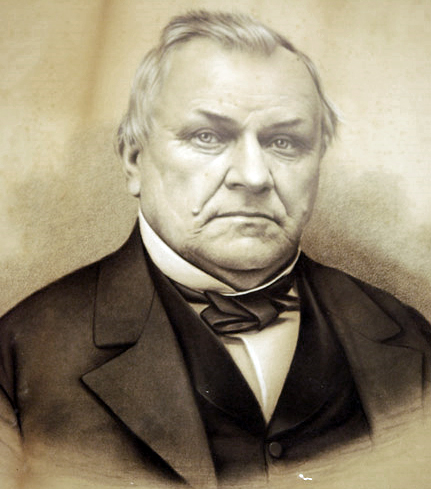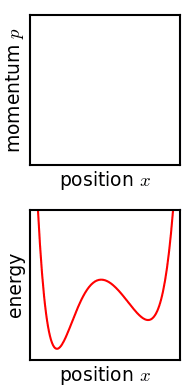|
Arthur Rosenthal
Arthur Rosenthal (24 February 1887, Fürth, Germany – 15 September 1959, Lafayette, Indiana) was a German mathematician. Career Rosenthal's mathematical studies started in 1905 in Munich, under Ferdinand Lindemann and Arnold Sommerfeld at the University of Munich and the Technical University Munich, as well as at the University of Göttingen. After submitting his thesis on regular polyhedra in 1909, he was promoted to assistant at the Technical University in 1911 and then associate professor in the University of Munich in 1920. The following year he was appointed associate professor in the University of Heidelberg, with a promotion to full professor in 1930. Between 1932 and 1933 he served as dean in the faculty of mathematics and natural sciences, but was forced from his university position as a result of Nazi policies against German Jews. He moved to the Netherlands in 1936 and from there emigrated to the United States in 1939. He was appointed lecturer and research fellow at ... [...More Info...] [...Related Items...] OR: [Wikipedia] [Google] [Baidu] |
Theodore Seio Chihara
Theodore Seio Chihara (born 1929) is a mathematician working on orthogonal polynomials who introduced Al-Salam–Chihara polynomials, Brenke–Chihara polynomials, and Chihara–Ismail polynomials. His brother is composer Paul Chihara Paul Seiko Chihara (born July 9, 1938) is an American composer. Life and career Chihara was born in Seattle, Washington in 1938. A Japanese American, he spent three years of his childhood with his family in an internment camp in Minidoka, Idah .... Publications * * References * * {{DEFAULTSORT:Chihara, Theodore Seio Living people 20th-century American mathematicians 21st-century American mathematicians 1929 births ... [...More Info...] [...Related Items...] OR: [Wikipedia] [Google] [Baidu] |
Academic Staff Of Heidelberg University
An academy (Attic Greek: Ἀκαδήμεια; Koine Greek Ἀκαδημία) is an institution of secondary or tertiary higher learning (and generally also research or honorary membership). The name traces back to Plato's school of philosophy, founded approximately 385 BC at Akademia, a sanctuary of Athena, the goddess of wisdom and skill, north of Athens, Greece. Etymology The word comes from the ''Academy'' in ancient Greece, which derives from the Athenian hero, ''Akademos''. Outside the city walls of Athens, the gymnasium was made famous by Plato as a center of learning. The sacred space, dedicated to the goddess of wisdom, Athena, had formerly been an olive grove, hence the expression "the groves of Academe". In these gardens, the philosopher Plato conversed with followers. Plato developed his sessions into a method of teaching philosophy and in 387 BC, established what is known today as the Old Academy. By extension, ''academia'' has come to mean the accumulation, de ... [...More Info...] [...Related Items...] OR: [Wikipedia] [Google] [Baidu] |
Purdue University Faculty
Purdue University is a public land-grant research university in West Lafayette, Indiana, and the flagship campus of the Purdue University system. The university was founded in 1869 after Lafayette businessman John Purdue donated land and money to establish a college of science, technology, and agriculture in his name. The first classes were held on September 16, 1874, with six instructors and 39 students. It has been ranked as among the best public universities in the United States by major institutional rankings, and is renowned for its engineering program. The main campus in West Lafayette offers more than 200 majors for undergraduates, over 70 masters and doctoral programs, and professional degrees in pharmacy, veterinary medicine, and doctor of nursing practice. In addition, Purdue has 18 intercollegiate sports teams and more than 900 student organizations. Purdue is the founding member of the Big Ten Conference and enrolls the largest student body of any individual univer ... [...More Info...] [...Related Items...] OR: [Wikipedia] [Google] [Baidu] |
Technical University Of Munich Alumni
Technical may refer to: * Technical (vehicle), an improvised fighting vehicle * Technical analysis, a discipline for forecasting the future direction of prices through the study of past market data * Technical drawing, showing how something is constructed or functions (also known as drafting) * Technical file, set of technical drawings * Technical death metal, a subgenre of death metal that focuses on complex rhythms, riffs, and song structures * Technical foul, an infraction of the rules in basketball usually concerning unsportsmanlike non-contact behavior * Technical rehearsal for a performance, often simply referred to as a technical * Technical support, a range of services providing assistance with technology products * Vocational education, often known as technical education * Legal technicality, an aspect of law See also * Lego Technic, a line of Lego toys * Tech (other) * Technicals (other) * Technics (other) * Technique (other) * Tec ... [...More Info...] [...Related Items...] OR: [Wikipedia] [Google] [Baidu] |
German Mathematical Society
The German Mathematical Society (german: Deutsche Mathematiker-Vereinigung, DMV) is the main professional society of German mathematicians and represents German mathematics within the European Mathematical Society (EMS) and the International Mathematical Union (IMU). It was founded in 1890 in Bremen with the set theorist Georg Cantor as first president. Founding members included Georg Cantor, Felix Klein, Walther von Dyck, David Hilbert, Hermann Minkowski, Carl Runge, Rudolf Sturm, Hermann Schubert, and Heinrich Weber. The current president of the DMV is Ilka Agricola (2021–2022). Activities In honour of its founding president, Georg Cantor, the society awards the Cantor Medal. The DMV publishes two scientific journals, the ''Jahresbericht der DMV'' and ''Documenta Mathematica''. It also publishes a quarterly magazine for its membership the ''Mitteilungen der DMV''. The annual meeting of the DMV is called the ''Jahrestagung''; the DMV traditionally meets every four y ... [...More Info...] [...Related Items...] OR: [Wikipedia] [Google] [Baidu] |
Hartogs–Rosenthal Theorem
In mathematics, the Hartogs–Rosenthal theorem is a classical result in complex analysis on the uniform approximation of continuous functions on compact subsets of the complex plane by rational functions. The theorem was proved in 1931 by the German mathematicians Friedrich Hartogs and Arthur Rosenthal and has been widely applied, particularly in operator theory. Statement The Hartogs–Rosenthal theorem states that if ''K'' is a compact subset of the complex plane with Lebesgue measure zero, then any continuous complex-valued function on ''K'' can be uniformly approximated by rational functions. Proof By the Stone–Weierstrass theorem any complex-valued continuous function on ''K'' can be uniformly approximated by a polynomial in z and \overline. So it suffices to show that \overline can be uniformly approximated by a rational function on ''K''. Let ''g(z)'' be a smooth function of compact support on C equal to 1 on ''K'' and set : f(z)=g(z)\cdot \overline. By the generaliz ... [...More Info...] [...Related Items...] OR: [Wikipedia] [Google] [Baidu] |
Dynamical Systems
In mathematics, a dynamical system is a system in which a function describes the time dependence of a point in an ambient space. Examples include the mathematical models that describe the swinging of a clock pendulum, the flow of water in a pipe, the random motion of particles in the air, and the number of fish each springtime in a lake. The most general definition unifies several concepts in mathematics such as ordinary differential equations and ergodic theory by allowing different choices of the space and how time is measured. Time can be measured by integers, by real or complex numbers or can be a more general algebraic object, losing the memory of its physical origin, and the space may be a manifold or simply a set, without the need of a smooth space-time structure defined on it. At any given time, a dynamical system has a state representing a point in an appropriate state space. This state is often given by a tuple of real numbers or by a vector in a geometrical manif ... [...More Info...] [...Related Items...] OR: [Wikipedia] [Google] [Baidu] |
Ergodic Theory
Ergodic theory (Greek: ' "work", ' "way") is a branch of mathematics that studies statistical properties of deterministic dynamical systems; it is the study of ergodicity. In this context, statistical properties means properties which are expressed through the behavior of time averages of various functions along trajectories of dynamical systems. The notion of deterministic dynamical systems assumes that the equations determining the dynamics do not contain any random perturbations, noise, etc. Thus, the statistics with which we are concerned are properties of the dynamics. Ergodic theory, like probability theory, is based on general notions of measure theory. Its initial development was motivated by problems of statistical physics. A central concern of ergodic theory is the behavior of a dynamical system when it is allowed to run for a long time. The first result in this direction is the Poincaré recurrence theorem, which claims that almost all points in any subset of the ... [...More Info...] [...Related Items...] OR: [Wikipedia] [Google] [Baidu] |
Michel Plancherel
Michel Plancherel (16 January 1885, Bussy, Fribourg4 March 1967, Zurich) was a Swiss mathematician. He was born in Bussy (Fribourg, Switzerland) and obtained his Diplom in mathematics from the University of Fribourg and then his doctoral degree in 1907 with a thesis written under the supervision of Mathias Lerch. Plancherel was a professor in Fribourg (1911), and from 1920 at ETH Zurich. He worked in the areas of mathematical analysis, mathematical physics and algebra, and is known for the Plancherel theorem in harmonic analysis. He was an Invited Speaker of the ICM in 1924 at TorontoPlancherel, Michel (1924" Sur les séries de fonctions orthogonales." In ''Proceedings of the International Mathematical Congress'', Toronto, vol. 1, pp. 619–622. and in 1928 at Bologna. He was married to Cécile Tercier, had nine children, and presided at the ''Mission Catholique Française'' in Zürich. See also *Plancherel measure *Plancherel theorem *Plancherel theorem for spherical function ... [...More Info...] [...Related Items...] OR: [Wikipedia] [Google] [Baidu] |
Constantin Carathéodory
Constantin Carathéodory ( el, Κωνσταντίνος Καραθεοδωρή, Konstantinos Karatheodori; 13 September 1873 – 2 February 1950) was a Greek mathematician who spent most of his professional career in Germany. He made significant contributions to real and complex analysis, the calculus of variations, and measure theory. He also created an axiomatic formulation of thermodynamics. Carathéodory is considered one of the greatest mathematicians of his era and the most renowned Greek mathematician since antiquity. Origins Constantin Carathéodory was born in 1873 in Berlin to Greek parents and grew up in Brussels. His father Stephanos, a lawyer, served as the Ottoman ambassador to Belgium, St. Petersburg and Berlin. His mother, Despina, née Petrokokkinos, was from the island of Chios. The Carathéodory family, originally from Bosnochori or Vyssa, was well established and respected in Constantinople, and its members held many important governmental positions. Th ... [...More Info...] [...Related Items...] OR: [Wikipedia] [Google] [Baidu] |


